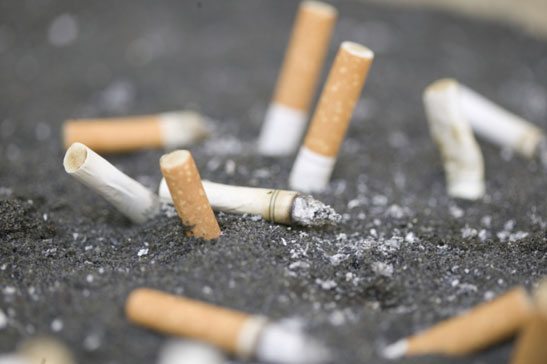Welcome to our weekly green news roundup. This week we’ve gathered stories about recycling cigarette butts, high-efficiency solar projects and more.
Feel free to send along any stories you’d like to see in the roundup by e-mailing me at kasia@azbigmedia.com. Also visit AZ Green Scene for informative articles on sustainability endeavors in the Valley and state.
A Call to Recycle Cigarette Butts
Every get annoyed by the countless cigarette butts that line every crevice of the sidewalks, roads, etc? Well fear not, a solution for this nuisance may be in the works! When New York State Assemblyman Michael G. DenDekker received a suggestion for a cigarette butt recycling program from a constituent he admittedly “had a little chuckle” at first. Luckily, he didn’t dismiss the idea until he did a little research on it. Turns out scientists in China had discovered that “soaking cigarette butts in water creates a solution that can protect steel pipes used by the oil industry from corroding.” And that’s not all! A designer in Brazil cleans cigarette butts and spins them with sheep wool into clothes while an inventor in Ohio has a patent pending to turn cigarette butts into sealants and adhesives. Pretty impressive for something that most of us would assume is hardly fit to be recycled. Who knows what else may be on the horizon?
Victorville Campus to Unveil High-Efficiency Solar Project
A new high-efficiency solar project has been revealed at Victor Valley College in Victorville, Calif. The school’s new 1-megawatt plant will utilize concentrator photovoltaics, or CPV. The technology is claimed to generate more energy at lower costs while using less open space. The plant will sit on a six-acre dirt plot in Victorville and will provide 30 percent of the campus’ power. This $4.5-million facility will be the largest of its kind in North America.
Oil Spill in the Mangroves is a Disgusting, Sticky Mess
Guest blogger Philippe Cousteau, chief correspondent for Planet Green shared his up close and personal accounts of the BP oil spill while reporting from Grand Isle, Louisiana. His reports show a sobering reality of the effects as they hit close to home. After visiting with the Louisiana Wildlife and Fish Department he learns that oil has made its way into the mangroves. This means that some of the most fragile wetland habitats in the world are at serious risk.




